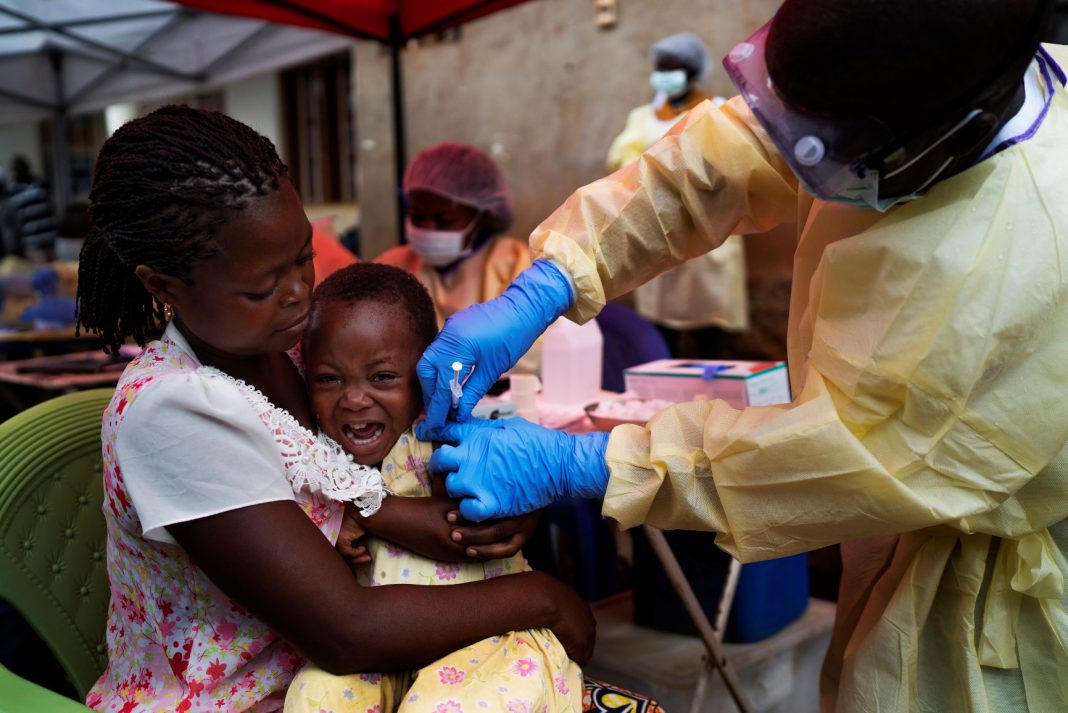June 16 Argentina; Uruguay; Paraguay: All of Argentina, Uruguay and parts of Paraguay experienced a massive power outage, leaving some 50 million people without power. According to TeleSUR, the blackout began at 7:06 a.m. local time due to “a massive failure in the electric interconnection system,” as stated by the service provider Edesur. “The grid failure that led to the national blackout originated in an electricity transmission connection between the Yacyreta and Salto Grande power plants on the Argentine coastline,” Edesur stated via Deutsche Welle. “This activated safeguards for the power plants, which then went out of operation and produced the blackout.” While the company has provided an explanation, authorities in the region are still searching for more answers.
June 16 Borno, Nigeria: A triple suicide attack has left at least 30 people dead and over 40 wounded in Nigeria’s northeastern Borno state. According to local reports through Al Jazeera, the attack happened around 9:00 p.m. in the city of Konduga after the owner of a venue hall packed with people watching a football match prevented at least one of the bombers from entering. The other attackers—reported to be two young girls—detonated their explosives near a popular tea shop. However, according to a military source reported by The Guardian, one of their devices failed to detonate and the suspect was apprehended. While the original death toll was reported to be 17 dead, the numbers rose when the military prevented rescue and medical personnel from accessing the area for 12 hours. No immediate group or individual claimed responsibility, but the militant group Boko Haram is suspected of being behind the attacks.
June 17 Cairo, Egypt: Egypt’s former President Mohamed Morsi, who has been jailed for the past six years amid reports of torture and denial of basic rights including medical care, died on June 17 of a heart attack shortly after collapsing while appearing before a court in a cage. Sarah Leah Whitson of Human Rights Watch said, “Former President Morsy’s death followed years of government mistreatment, prolonged solitary confinement, inadequate medical care and deprivation of family visits and access to lawyers.” Additionally, Morsi was diabetic and was routinely denied insulin dosages, prompting him to fall into diabetic comas. Morsi is the only president to be democratically elected in Egypt following the Arab Uprisings of 2011, which saw the toppling of Hosni Mubarak’s 30-year rule. Led by current President and former General Abdel Fattah el-Sisi, Morsi was ousted by the military in 2013 and has remained in prison since. According to Middle East Eye, Morsi’s family was denied the body in order to bury him in his hometown and instead was buried in a public cemetery in Cairo. Al Jazeera reports the UN has called for an independent investigation into Morsi’s imprisonment and death.
June 17 Sichuan, China: A magnitude 6.0 earthquake hit close to the major city of Yibin late on the night of June 17, killing 12 people and injuring 135 more. The South China Morning Post reported the earthquake affected over 100,000 people, with rescue aids including 300 firefighters working to assist survivors and locate those amid collapsed structures. Some 10,000 buildings were damaged as well as one major bridge, and major roads and highways were blocked due to landslides. According to Deutsche Welle, 4,000 people living in the area required relocation.
June 19 Geneva, Switzerland: Following the disappearance and murder of self-exiled journalist Jamal Khashoggi in October 2018, UN Special Rapporteur Agnes Callamard concluded this week there was credible evidence linking the Saudi royal family including Crown Prince Mohammed bin Salman to the murder. Callamard, who is an expert on extrajudicial, summary and arbitrary executions, published the 100-page report on June 19, citing audio recordings from inside the Saudi consulate in Istanbul which gave detail to the murder. Callamard concluded the murder was a “premeditated extrajudicial execution,” documenting steps which were taken by the Kingdom in targeting Khashoggi and other dissidents. According to Deutsche Welle, the report will be presented to the UN Human Rights Council on June 26.
June 20 Iran: Amid ongoing tensions between Iran and the United States, Iran’s Revolutionary Guard, IRGC, shot down a U.S. drone, claiming it violated Iranian airspace, Middle East Eye reported. The IRGC claimed the drone—identified as an RQ-4 Global Hawk—was flying over Iran’s southern Hormozgan Province with the intent of spying. The U.S military refuted this, claiming the drone was flying over the Strait of Hormuz in the Persian Gulf. In response to the incident, Al Jazeera reported the U.S. coordinated a cyberattack against Iranian control systems. Additionally, President Donald Trump approved retaliatory military strikes. However, according to Reuters, the operation was called off 10 minutes beforehand due to concerns the response would be disproportionate. The Global Hawk is described by U.S. defense contractor Northrop Grumman as being “the premier provider of persistent intelligence, surveillance and reconnaissance information…designed to gather near-real-time, high-resolution imagery of large areas of land in all types of weather.”
When I first came to PSU, I was a Chinese major, having studied three years prior in high school alongside French and Japanese. After the first year, I took a hiatus. I don't believe in going to college straight out of high school, but it's what was expected. I returned a few years later to study Japanese at PCC and Arabic at PSU. I am now a junior majoring in International Studies: Middle East and Arabic. In the future, I would like to work as a journalist or humanitarian aid worker in the region, helping people who lack economic and political backing and media exposure.






